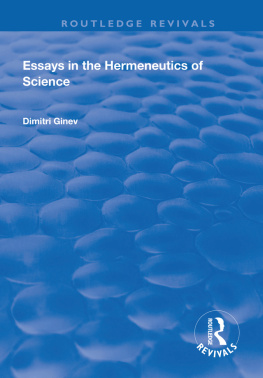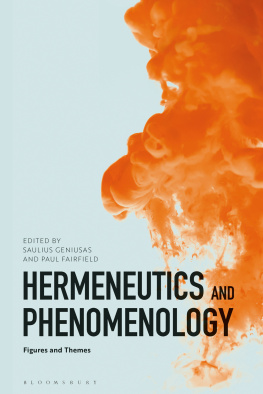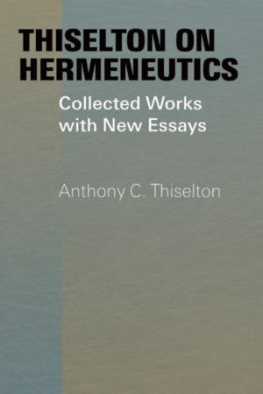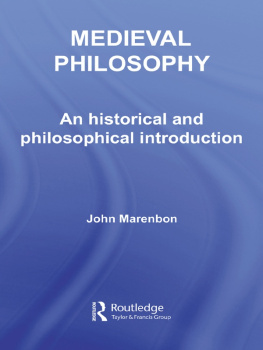The author would like to thank all the publishers whose names are listed in the Table of Contents for permission to reprint the twelve articles in the present volume of the Variorum series. Special thanks are owed to the publishing house of J. Vrin (Paris), the copyright owners, for permission to reprint article 8.
ANCIENT PHILOSOPHY BECOMES MEDIEVAL PHILOSOPHY
[894] Any attempt to describe and understand the transition between ancient and medieval philosophy is immediately confronted by the enormous quantity of writings to be evaluated and by the complexity of their interrelations. In the face of such a challenge, certain methodological premises guiding the selection of authors, texts, and themes must be established, even if that selection can only be fully justified at the conclusion of the project. The analysis to be undertaken here will employ the following explicit criteria.
First, the authors of the texts transmitted and their privileged themes will be used as the basis for investigating the readers of the transmitted texts and their privileged themes rather than the reverse. To provide some concrete examples, we will employ the ancient writer Calcidius presentation of the three principles of Platonism as a starting point for the discussion of Hugh of St. Victors medieval treatment of the same topic, or the ancient writer Boethius definitions of nature as a starting point for Iohannes Scottus Eriugenas treatment of the same issue during the ninth century, or again the ancient writer Proclus placing of the One beyond Being as a starting point for Berthold of Moosburgs medieval treatment of the same question. Discussion of the actual medieval context of such philosophical questions in a systematic or chronological manner will not be our primary concern.
Secondly, the emphasis will be placed on secular rather than Christian writings, on the writings of post-classical rather than classical antiquity, and on the writings of Platonists rather than Aristotelians. In other words, we will discuss in terms of their medieval afterlife late ancient commentaries on Plato written by Platonists such as the Commentarius in Timaeum of Calcidius, certain independent treatises exhibiting Platonic tendencies like Proclus Elementatio Theologica, and late ancient commentaries on
We shall note later a few places where the influence of these Christian writers combines with that of the secular Platonists in significant ways (see pp. 897 and 898 on Augustine and p, 908909 and 911 on Dionysius). To summarize briefly: A (With regard to methodology) Augustine established the propaedeutic role of secular scientia towards Christian sapientia, and the concept that Platonism and Christianity agree on fundamental questions. Dionysius conferred apostolic authority on (crypto-) Platonic Christian theology. B (With regard to doctrine) Both writers accept the substantiality and immortality of the human soul and the providential order of creation. Augustine emphasized the dichotomy of intelligible and sensible, the parallel continua between good/being and evil/non-being, the notion of creation with time rather than in time, and the trinitarian structure of created things. Dionysius introduced a more radical transcendence of God, the formalized dichotomy of affirmative and negative theology, the formalized dichotomy of the procession and reversion of the created things, and triadic structure of the angelic world. It is usually against a backdrop of these assumptions that medieval thinkers understood what they read in Calcidius, Boethius, or Proclus.
Application of these criteria leads to a methodological division of this essay into three main sections dealing with the influence on medieval philosophy of the late ancient writers Calcidius, Boethius, and Proclus, respectively. This ordering conflicts with the chronological order of the late ancient authors themselves which should rather be Calcidius, Proclus, Boethius but is necessary in order to take account of the pattern of medieval reception. The essay will conclude with a fourth section dealing with the influence of various late ancient writers whose influence on medieval philosophy is less than that of the main group but still worthy of note.
The best methodological introduction to the study of the medieval Platonic tradition is probably still Klibansky 1982 (1939) to which one must now add the collection of essays in Gersh and Hoenen 2002. In the absence of a complete large scale history, Garin 1958, Gregory 1958, Beierwaltes 1985 contain excellent surveys of specific areas. Faes de Mottoni 1979 provides a useful brief introduction with a selection of texts. Beierwaltes 1969 is a collection of classic essays by various hands. On the late ancient Latin sources of the tradition, see Gersh 1986.
ICalcidius
The influence of ideas from Calcidius Commentarius in Timaeum can be found mostly in the eleventh and twelfth centuries, with some earlier traces. For the purposes of this analysis, we should particularly take account of Calcidius doctrines regarding the three principles, the distinction between higher and lower forms, the origin of the world, the relation between the world soul and the Holy Spirit, the relation between the world soul and the human soul, and the relation between macrocosm and microcosm.
There is no adequate survey of the influence of Calcidius during the Middle Ages. This is probably because the fortuna of Calcidius commentary has been viewed as inextricable from that of the Latin Timaeus itself. On this combination, see Mensching 1965, Gibson 1969, Jeauneau 1975, 2223, 27ff., Bakhouche 1997, Dutton 1997.
When Calcidius speaks of the three principles: who wished to separate this philosophy clearly from Christianity.
Commentarius in Timaeum 307. 308. 14309. 2.
Ibid. 302. 303. 15304. 17.
Ibid. 302. 303. 9306. 10.
See Adnotationes Elucidatoriae in Pentateuchon, in Genesim 4, 33AB, De Sacramentis I. 1. 1, 187AB, Didascalicon II. 5, 29. 1923.
Another passage in Calcidius commentary
In Timaeum 347. 339. 16.
Glosae super Platonem 4. 188199.
Ibid. 8. 246275.
Expositio in Contra Euticen et Nestorium 1. 8285, p. 260 and Expositio in De Trinitate 1. 2. 26, p. 83.
Calcidius has a clear doctrine regarding the origin of the world and a definite interpretation of Platos quasi-sequential narrative in the Timaeus. For the commentator, the world is both made and eternal. Its origin can be described as causative (causativa) rather than temporal (temporaria) because it [897] arose in a single self-identical moment (uno eodemque momento). In fact, the beginnings of the world and time itself are simultaneous. distinguish the original causative moment of cosmogony identifiable with the traces in Platos Receptacle from the first six days of creation in which the elements were gradually reconfigured into their present form, and also from the subsequent historical era.
Ibid. 23. 73. 67; 23. 74. 1519; 101. 152. 1113; 105. 154. 1719.
Glosae super Platonem 4041, pp. 7376; 43, pp. 7778; 94, pp. 165167.
De Sex Dierum Operibus I. 24, pp. 565566.
Among issues of interest to medieval scholars raised by Calcidius interpretation of the world soul mentioned in Platos Timaeus, it was undoubtedly its placing as a third substance (tertia substantia) after God and Providence
In Timaeum 188. 213. 12.
Glosae super Boetium iii, m. 9, pp. 525528.
Philosophia Mundi I. 4. 13.
Glosae super Platonem







